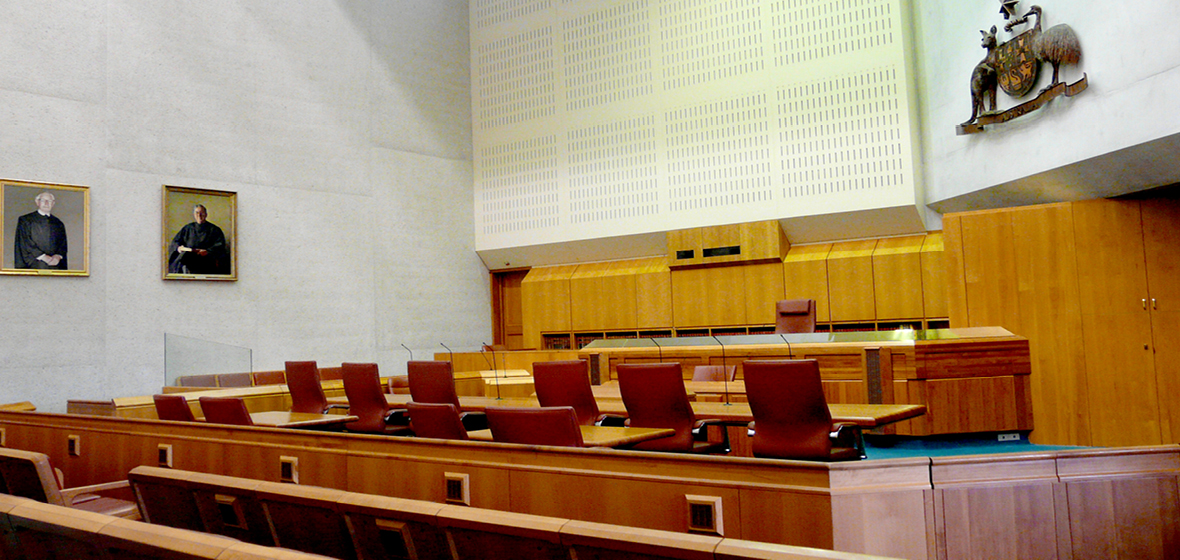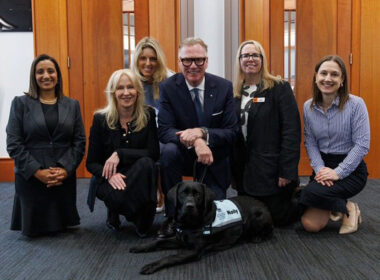Where a person lives should not determine whether they can access appropriate justice facilities. A lack of access in regional NSW imposes barriers to justice for local communities.”
More than 90 per cent of solicitors in NSW want to retain the flexibility offered by technology used during the COVID-19 pandemic, according to a survey by the Law Society of NSW.
The data forms part of the organisation’s State Election Platform, which seeks to advocate to Government on key areas impacting the legal profession before NSW voters head to the polls on Saturday 25 March.
The survey conducted in 2021 found solicitors want to continue to participate in online case management and directions hearings, lodge documents and make court applications via email, download files remotely and interview clients in custody by audio-visual link.
President of the Law Society of NSW Cassandra Banks said Government needs to take seriously the lessons learned from the implementation of these measures during COVID to inform funding decisions about modernising the court system.
“While some matters, including contested and complex matters need access to facilities to conduct face to face hearings, enormous cost savings are available to the courts and court users through the appropriate use of digital infrastructure including increased use of Audio-Visual Technology (AVL),” Banks said.
Further, Banks said the next NSW Government should pay “particular attention” to properly resourcing the NSW Local Court and the NSW Civil and Administrative Tribunal (NCAT).
“These jurisdictions are the engine rooms of justice in NSW, where the overwhelming majority of criminal and civil cases are heard, but in many areas are struggling with desperately out of date paper-based systems” Banks said.
“The Law Society remains concerned with the rising workload in the criminal court because recent increases in police resources have not been matched by increased resources to the courts.
“While NCAT has emerged from COVID restrictions in a relatively healthy position, greater investment in online technology and processes is needed to bring down the tribunal’s continuing and significant backlog and deliver services in a far more convenient format for our members’ clients – the public.”
 Cassandra Banks, Law Society of NSW President
Cassandra Banks, Law Society of NSW President
It comes as comments from the President of the Law Council of Australia Luke Murphy were published this week by News Corp Australia, saying that while the shift to online court proceedings will help minimise time and cost efficiencies, they come with their own set of unique challenges.
“Reliance on online hearings and virtual hearings and virtual transactions can have drawbacks in some instances, and not all legal proceedings or corporate interactions will be suited to attendance by audio-visual technology … online proceedings may benefit some … but for others, a shift online could limit or even prevent access to justice,” Murphy told The Australian.
Murphy also condemned the use of AI-operated lawyers in the courtroom, saying lawyers “would not and could not” be replaced by robots in the near future.
However, he did agree there is a place for AI in the legal profession: “How AI is incorporated into legal practice will be a vital area of focus in the coming years and may even play a role in creating opportunities for increased access to justice.”
Banks said increased investment in court infrastructure, technology and more judicial officers is crucial in dealing with delays and backlogs and “postcode justice”.
“Where a person lives should not determine whether they can access appropriate justice facilities. A lack of access in regional NSW imposes barriers to justice for local communities,” Banks said.
“The remote working model, like that adopted across tens of thousands of workplaces during COVID, had enormous benefits to the justice system when used appropriately, allowing thousands of non-contested and case management proceedings to be completed efficiently and fairly.”
In his response to the Law Society’s State Election Platform, NSW Attorney General Mark Speakman highlighted the NSW Government’s investment of more than $326 million since 2016 to tackle the backlog of cases in the District Court.
Speakman also said the Government has delivered 36 new court rooms across the State since 2011, including 12 in Newcastle.
“With the record resourcing and support from the NSW Government, many of our jurisdictions are also leading the country on key performance indicators, including the Local, District and Coroners Courts,” he said.
NSW Opposition Attorney General Michael Daley said if elected, Labor would continue to consult on the strategic development of a new justice precinct in Western Sydney.
Daley also addressed concerns about modernising the court system and regional access to justice, saying Labor would work with the judiciary to fund and implement solutions to expedite matters more efficiently.
“NSW Labor is concerned by the massive increases in Local Court finalisation times recently detailed by BOCSAR,” he said.
“Labor is acutely aware of the demands also being placed on the District Court as sexual assault caseloads increase. The District Courts workload will further increase once coercive control offences comes into force.”




